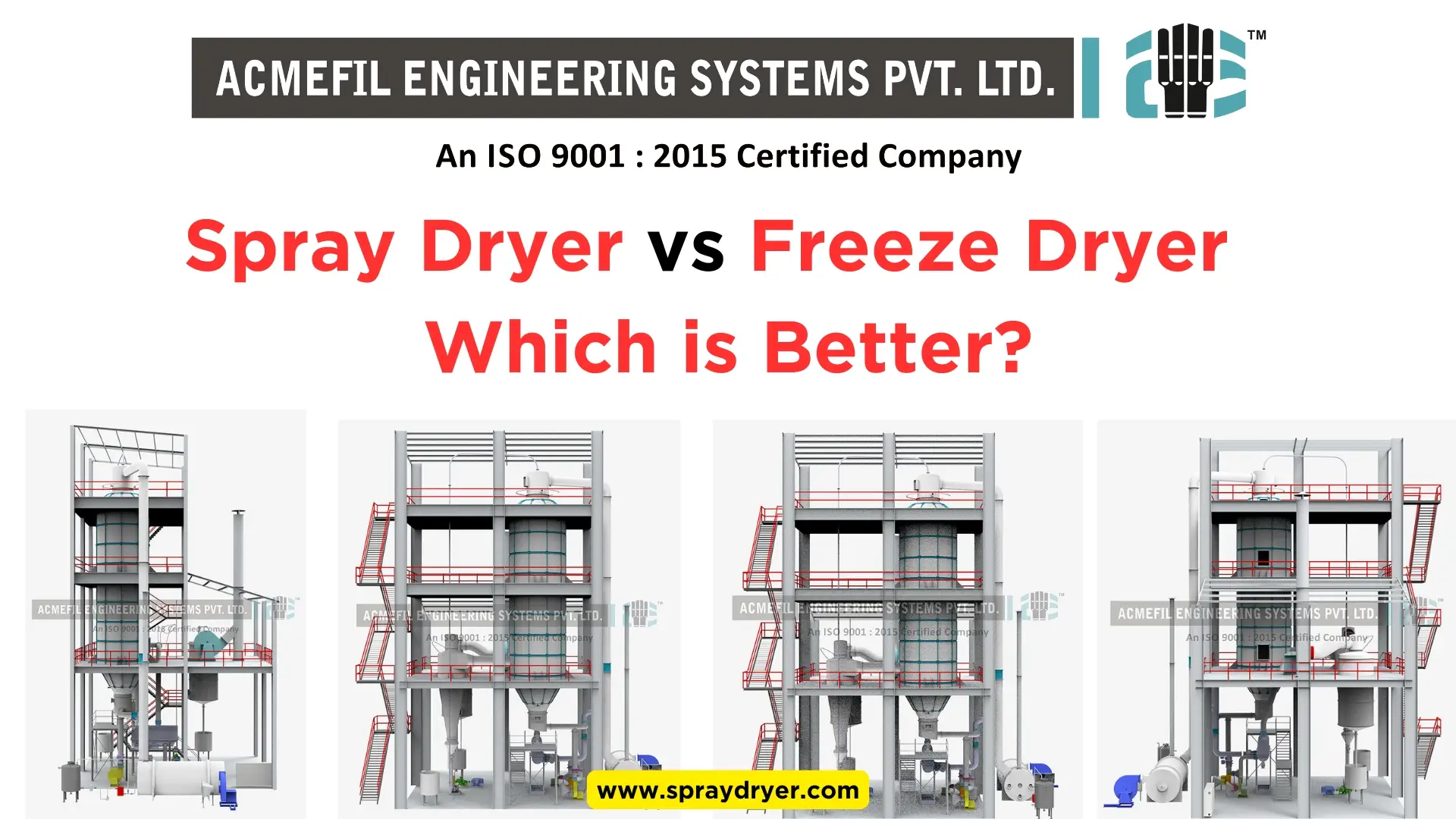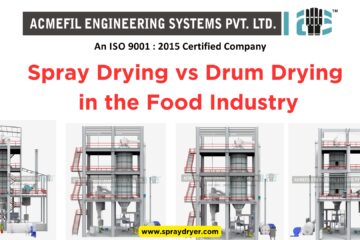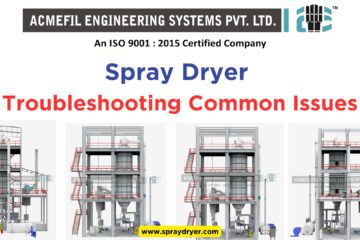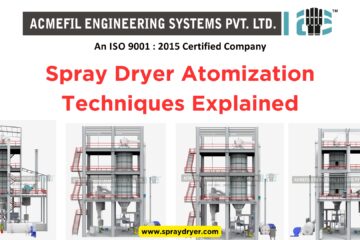When it comes to drying technologies, two of the most widely used methods are spray drying and freeze drying. Both processes are crucial in industries ranging from food processing to pharmaceuticals, yet they differ significantly in terms of how they work and the results they produce. This blog post will explore the differences between spray dryers and freeze dryers, helping you determine which method is better suited for your specific needs.
Understanding Spray Dryers
A spray dryer is a device that rapidly dries liquids or slurry into a powder by spraying them into a hot drying medium, usually air. The process involves atomizing the liquid into fine droplets and then exposing them to hot air, which evaporates the moisture, leaving behind dry particles. Spray dryers are commonly used in industries like food processing, pharmaceuticals, and chemicals for products such as powdered milk, coffee, and detergent.
Key Advantages of Spray Dryers:
- High Throughput: Spray dryers can handle large volumes of liquid, making them ideal for industrial-scale operations.
- Cost-Efficiency: The process is relatively fast, reducing energy consumption and operational costs.
- Product Uniformity: Spray drying produces consistent, uniform particles, which is essential for product quality.
- Retention of Volatile Compounds: Because the drying process is quick, spray dryers can preserve the volatile components of the material, such as flavors and aromas, better than some other methods.
Understanding Freeze Dryers
Freeze drying, also known as lyophilization, is a process that involves freezing the product, reducing the pressure, and then removing the moisture through sublimation. This method is commonly used in pharmaceuticals, biotechnology, and food industries, especially for products like vaccines, biological samples, and high-quality food items like coffee and fruits.
Key Advantages of Freeze Dryers:
- Retention of Nutritional Value: Freeze drying preserves the nutritional content of the product better than most other drying methods.
- Long Shelf Life: Freeze-dried products have an extended shelf life without the need for preservatives, making them ideal for long-term storage.
- Maintains Product Structure: The gentle nature of freeze drying preserves the original structure and appearance of the product, which is crucial for sensitive materials.
- Minimal Thermal Degradation: Since the process occurs at low temperatures, there’s less risk of thermal degradation, making it suitable for heat-sensitive materials.
Comparing Spray Dryers and Freeze Dryers
Now that we understand how to spray dryers and freeze dryers work, let’s compare them based on several critical factors:
1. Processing Time:
- Spray Dryer: The spray drying process is faster, typically taking just a few seconds to complete. This makes it ideal for high-volume production environments.
- Freeze Dryer: Freeze drying is a slower process, often taking several hours or even days to complete. This extended time is necessary to ensure that the product is thoroughly dried without compromising its quality.
2. Energy Consumption:
- Spray Dryer: Spray dryers are generally more energy-efficient, mainly because the process is quicker and uses hot air to evaporate moisture rapidly.
- Freeze Dryer: Freeze dryers consume more energy due to the need to maintain low temperatures and reduce pressure for extended periods.
3. Cost:
- Spray Dryer: The initial investment for spray dryers is generally lower, and the operating costs are also more affordable, making it a cost-effective solution for many industries.
- Freeze Dryer: Freeze dryers require a higher initial investment and have higher operating costs due to their energy demands and longer processing times.
4. Product Quality:
- Spray Dryer: While spray drying is efficient, it may not be the best choice for heat-sensitive products. The high temperatures involved can lead to thermal degradation of certain materials.
- Freeze Dryer: Freeze drying excels in preserving the quality, structure, and nutritional content of the product. It’s particularly suited for high-value and sensitive products where quality is paramount.
5. Versatility:
- Spray Dryer: Spray dryers are versatile and can handle a wide range of materials, but they are best suited for products that can withstand heat.
- Freeze Dryer: Freeze dryers are less versatile in terms of materials they can process but are unmatched when it comes to preserving sensitive products.
6. End Product Characteristics:
- Spray Dryer: The end product is usually a fine powder with a low moisture content, which is ideal for products that require easy dissolution or reconstitution.
- Freeze Dryer: The end product retains its original shape and structure, often resulting in a more porous and lightweight material, ideal for instant rehydration.
Which is Better: a Spray Dryer or a Freeze Dryer?
The answer to this question depends on your specific needs and priorities. If your goal is to achieve high throughput with lower operational costs, and your product can tolerate heat, a spray dryer might be the better choice. On the other hand, if product quality, nutritional retention, and long shelf life are your primary concerns, especially for heat-sensitive materials, a freeze dryer is likely the better option.
For instance, in the food processing industry, where preserving flavor, aroma, and nutritional content is crucial, freeze-drying is often the preferred method. However, for products like powdered milk or instant coffee, where high throughput and cost efficiency are more critical, spray drying would be the go-to option.
Conclusion
Both spray dryers and freeze dryers have their own set of advantages and limitations. Your choice between the two should be guided by the specific requirements of your product and process. At Acmefil Engineering Systems Pvt. Ltd., we specialize in providing top-notch spray dryers that cater to a variety of industrial needs, ensuring efficiency, cost-effectiveness, and high product quality. By understanding the key differences between spray drying and freeze drying, you can make an informed decision that aligns with your production goals.
Whether you are in the food processing industry, pharmaceuticals, or any other sector that requires drying technology, choosing the right method is crucial. Contact us at Acmefil Engineering Systems Pvt. Ltd. to learn more about how our spray dryers can enhance your production process.




